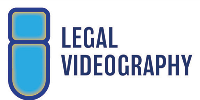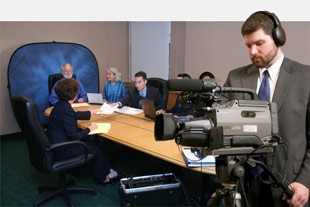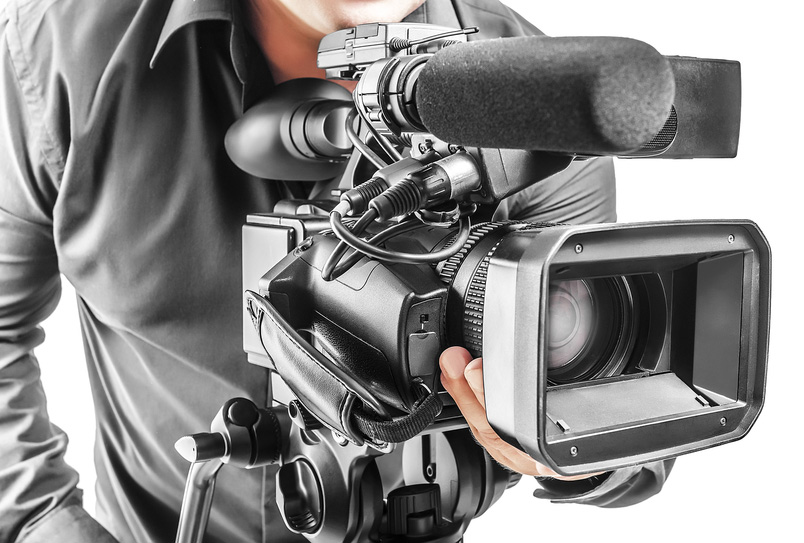Professional Legal Videography for Your Legal Needs.
Professional Legal Videography for Your Legal Needs.
Blog Article
The Role of Legal Videography in Depositions and Tests
Legal videography has arised as an essential device in both depositions and tests, supplying a diverse technique to documenting witness testimonies. As legal specialists significantly acknowledge its value, it prompts a much deeper assessment of exactly how these visual documents can affect juror understandings and trial end results.
Value of Lawful Videography
Legal videography plays a pivotal duty in the paperwork and presentation of depositions and tests. This customized field combines technological skills with lawful expertise to produce a dependable document of procedures that can considerably influence instance outcomes. The aesthetic element of legal videography boosts the understanding of witness statement, allowing jurors and courts to observe not only the talked words however additionally the temperament, emotions, and body movement of the witnesses.

The significance of legal videography expands past the court; it also plays an essential duty in protecting evidence for future referral, whether for charms or further lawful action. Because of this, its assimilation into the legal procedure is vital for ensuring a reasonable and precise representation of the truths, ultimately adding to the quest of justice.

Refine of Legal Videography
While capturing the nuances of depositions and trials, the procedure of lawful videography involves several important actions that ensure top notch, exact recordings. A specialist lawful videographer prepares by reviewing the case materials and understanding the particular demands of the deposition or test. This prep work includes familiarizing themselves with the individuals and the context, which assists in recording important information.
On the day of the recording, the videographer establishes the necessary tools, which typically consists of high-definition electronic cameras, microphones, and correct illumination. Making sure optimal angles and sound high quality is crucial, as it straight influences the performance of the recording. The videographer interacts with lawyers and participants to establish methods, making sure that everybody comprehends the recording procedure.
During the deposition or trial, the videographer carefully records the process, paying attention to both verbal and non-verbal cues. legal videography. This consists of catching the temperament and responses of witnesses and attorneys. After the session ends, the videographer might modify the footage for quality and conformity with legal standards, producing a last item that precisely reflects the process for future referral and use in lawful contexts
Advantages in Depositions
The consolidation of videography in depositions offers numerous advantages that enhance the general process of collecting evidence. One key advantage is the ability to record Learn More witness statements with visual and auditory integrity, offering an extra exact depiction of the witness's demeanor, tone, and body movement. This multidimensional method permits lawyers and courts to assess reputation better than standard written transcripts alone.
Furthermore, videographed depositions function as an effective device for protecting statement. Should a witness become unavailable for test, their recorded deposition can be played in court, making sure that their proof remains easily accessible and appropriate. This aspect dramatically minimizes the threat of shedding vital information that can affect case results.
In addition, making use of lawful videography promotes much better preparation for attorneys. Examining video clip footage permits legal teams to examine and improve their strategies, determining staminas and weak points in their instances. This primary advantage can lead to more compelling presentations in court.
Finally, videography boosts the total professionalism and reliability of the deposition process, instilling self-confidence in clients pertaining to the thoroughness of their legal depiction. By leveraging technology, lawyers can substantially enhance the effectiveness of depositions.
Influence On Tests
In numerous tests, the integration of videography can considerably influence the presentation of evidence and the jury's perception. Lawful videography records witness testaments and important proof in a vibrant style, enabling jurors to engage with the material on multiple degrees. This aesthetic part enhances the storytelling element of a trial, providing context and psychological vibration that standard text-based evidence may do not have.
Moreover, video clip recordings can function as powerful tools for impeachment throughout interrogation. When inconsistencies occur between a witness's previous statements and their court room testament, video clip evidence provides an unbiased recommendation that can guide jurors' opinions. This immediacy and clearness can boost the reputation see of an event's narrative while all at once weakening opposing disagreements.
Additionally, making use of videography can aid enhance complicated information, making it more easily accessible to jurors that might have a hard time to understand intricate details presented entirely with verbal testimony. By combining visuals with acoustic information, lawful videography can boost retention and understanding, inevitably influencing the jury's decision-making process. The impact of videography in trials expands past simple appearances; it plays a critical role in shaping the legal landscape and results.
Future Trends in Legal Videography
As we look towards the future of lawful videography, a number of arising fads promise to improve its function within the courtroom. One substantial trend is the integration of expert system (AI) in video clip evaluation and editing and enhancing - legal videography. AI can enhance the process straight from the source of determining crucial moments in tape-recorded depositions, permitting lawyers to quickly access relevant material, consequently improving performance in situation preparation
Additionally, the rise of virtual fact (VR) and increased fact (AR) modern technologies is anticipated to transform how jurors experience evidence. By immersing jurors in a simulated environment, these technologies can offer a much more profound understanding of complicated situations, causing even more enlightened considerations.

Additionally, the increasing demand for remote depositions, increased by the COVID-19 pandemic, will likely continue. Legal videographers will require to adjust to brand-new software application and platforms to ensure top notch recordings in online settings.
Lastly, the growing focus on information safety and security will certainly demand more stringent protocols for keeping and sharing video clip proof. As the lawful landscape evolves, legal videographers must remain abreast of these patterns to preserve their relevance and performance in the judicial procedure.

Final Thought
In recap, lawful videography serves an important feature in the judicial procedure, enhancing the integrity of depositions and tests. As modern technology proceeds to evolve, legal videography is poised to more transform its duty within the lawful landscape.
Report this page